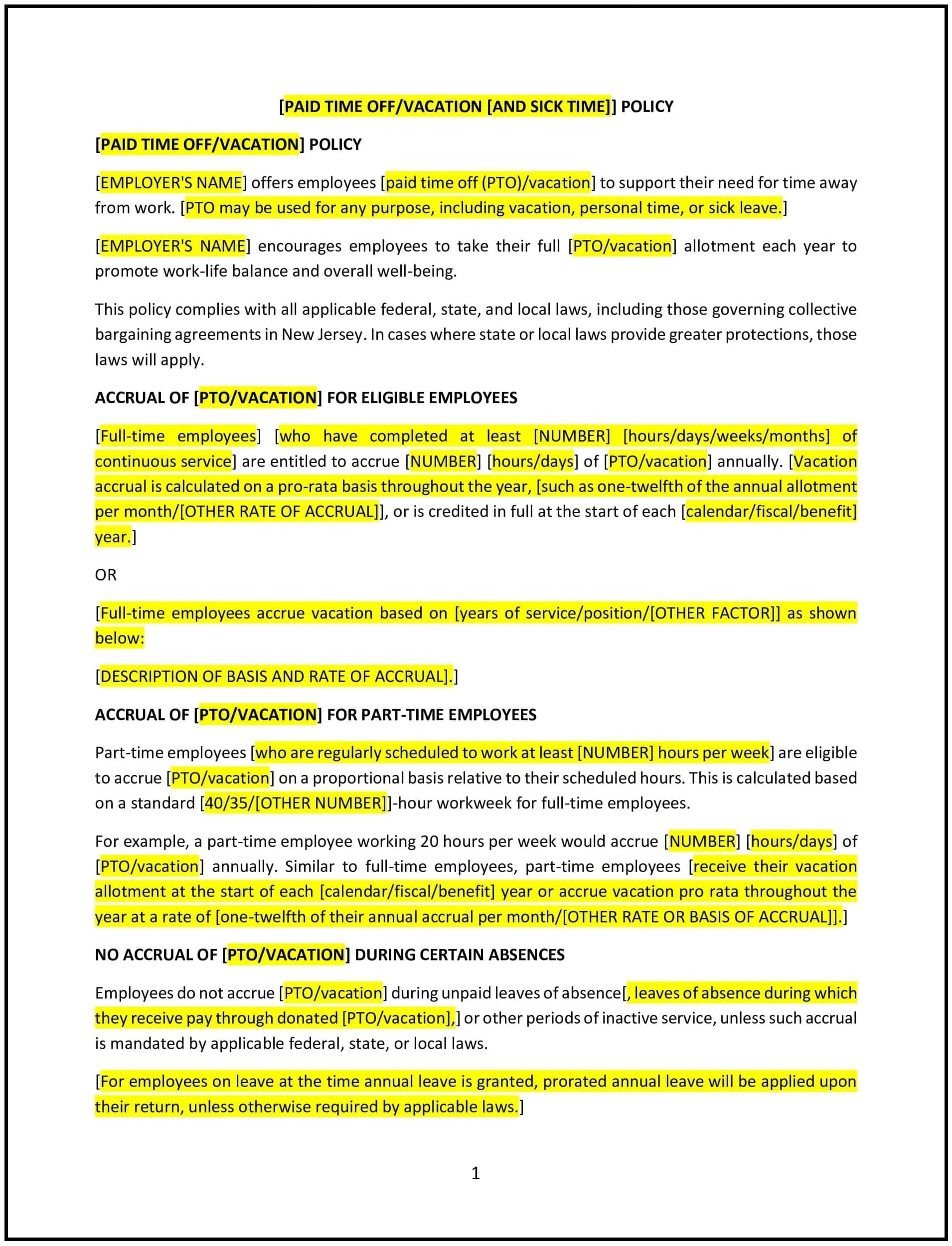Got contracts to review? While you're here for policies, let Cobrief make contract review effortless—start your free review now.

Customize this template for free
Vacation policy (New Jersey)
A vacation policy helps New Jersey businesses establish clear guidelines for employees to take time off for personal rest, relaxation, or travel. This policy defines how vacation time is accrued, how it can be requested, and any limitations or conditions related to the use of vacation days.
By adopting this policy, businesses in New Jersey can create a consistent and fair approach to time off, improve employee satisfaction, and ensure that vacation time is managed efficiently and responsibly.
How to use this vacation policy (New Jersey)
- Define vacation accrual: Specify how vacation time is accrued, whether it’s based on hours worked, length of employment, or another system, and the rate at which employees earn vacation days.
- Set eligibility criteria: Establish any eligibility requirements for taking vacation, such as the length of time an employee must work before being eligible for vacation time.
- Outline the request process: Define how employees should request vacation time, including any required notice periods, forms, or approval procedures.
- Set vacation carryover rules: Clarify whether unused vacation days can be carried over into the next year or if they will expire.
- Address paid and unpaid leave: Specify whether vacation time is paid or unpaid, and whether employees can take unpaid leave if they have exhausted their paid vacation days.
- Define vacation limits: If applicable, set limits on how much vacation time can be taken at once or how often it can be requested during busy times of the year.
- Provide for employee work-life balance: Encourage employees to take regular vacation time to promote their well-being and prevent burnout.
- Review and update: Regularly assess the policy to ensure it aligns with New Jersey regulations, company practices, and employee needs.
Benefits of using this vacation policy (New Jersey)
This policy provides several benefits for New Jersey businesses:
- Promotes employee well-being: Encourages employees to take time off to recharge, reducing stress and increasing productivity when they return to work.
- Improves work-life balance: Supports employees in managing their personal and professional lives, enhancing job satisfaction and retention.
- Ensures consistency: Provides a clear and fair system for all employees to request and take vacation time, preventing misunderstandings and disputes.
- Manages staffing needs: Helps the company plan for employee absences, ensuring that business operations are not disrupted when employees take vacation.
- Demonstrates commitment to employees: Shows that the company values its employees’ personal time and well-being, fostering a positive work environment.
Tips for using this vacation policy (New Jersey)
- Communicate the policy clearly: Ensure all employees understand how vacation time is accrued, how to request time off, and the rules for taking and carrying over vacation days.
- Monitor vacation balances: Keep track of employees’ vacation balances and ensure that they are taking time off as needed while maintaining operational efficiency.
- Be flexible with requests: While setting guidelines and limitations, be flexible in approving vacation requests whenever possible, especially when employees have planned well in advance.
- Encourage regular time off: Encourage employees to take vacation time regularly to maintain a healthy work-life balance and reduce burnout.
- Review the policy regularly: Update the policy periodically to reflect changes in New Jersey regulations, company needs, and employee preferences.